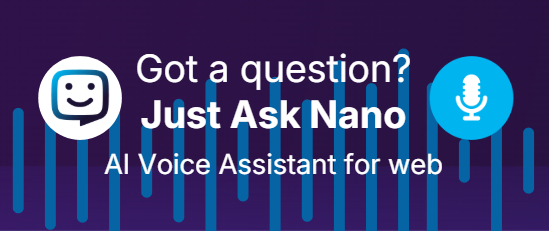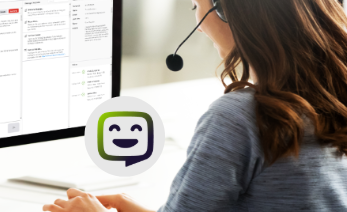.jpg)
Apps, portals, and conversational AI have become indispensable tools for housing associations to meet customer demands, streamline operations, and enhance productivity. In this blog, we will explore what housing associations need to consider when implementing successful, user-friendly apps, portals, and intelligent automated customer assistance.
Establish Clear Objectives
Start small and think big. Digitisation is a journey. Clearly defining objectives and key performance indicators (KPIs) for each stage of the project is crucial for achieving successful app, portal, and automation implementation.
Design for Engagement and Functionality
Consider more than just fonts and colour contrast. Too often, as we add automation and features to a website, we overlook the accessibility that makes it inclusive for everyone. Any element integrated into the app or portal must be accessible. For example, when implementing automation and AI, it is essential to ensure that all aspects of interaction are presented in a digital-friendly format. They should be easy to read and complete and provide speech-to-text options if necessary. We have all experienced the frustration of being asked to download a form or document that cannot be read on our device. Common issues include PDFs that do not scale to mobile devices or forms that do not have text fill fields and require printing and scanning.
Understand Your Audience
User experience (UX) is paramount, especially when dealing with people of different generations, cultures, language preferences, and technology proficiency. Carefully designed UX accounts for visual and speech impairments, as well as standard user preferences, empowering customers to choose how they interact with their organisations.
Manage Data Flows
To ensure success, your self-service portal must have a reliable, single source of truth for each data component. Additionally, there should be a seamless exchange of information between the portal and the data source to maintain accuracy.
Self-service portals with integrated Intelligent Virtual Assistants and apps depend on effective integration with in-house data sources such as the contact center, CRM, service desk, calendars, and housing management systems. This enables efficient responses to inquiries by matching past conversations.
A significant advantage of self-service portals for housing associations is the reduction of data duplication and improved data security.
Create Seamless Experiences through UX, CS, and EX
A well-designed self-service portal or app must not only be user-friendly but also drive operational efficiencies, enhance customer experiences (CX), and boost employee productivity through improved employee experiences (EX).
Align Technology with Objectives
In addition to design considerations, aligning technology with desired outcomes is crucial. Both apps and portals play important roles in the digitalisation journey.
A portal offers specific functionalities and serves as a gateway to relevant information. It requires internet access and should be designed to be mobile-friendly. On the other hand, apps are tailored with intuitive buttons and functions to help users find what they need quickly, including links to FAQs, secure payment options, and personal information updates.
By providing both a portal and an app, housing associations expand choice and accessibility for the services they offer. Deciding which to use, or whether to utilise both, depends on understanding the desired outcomes and the target audience's demographics.
Encourage Adoption
To promote adoption, it's crucial to highlight these apps and portals in all communications with your customers. Once they're registered, make sure to emphasise that these platforms are their primary pathway for receiving and initiating conversations. While emails or texts are still acceptable, include a direct link to the app/portal for comprehensive information. This will help customers appreciate and become comfortable with the technology.
Track, Evaluate, and Improve
Continuous monitoring is key. Analytics provide vital information such as KPIs and real-time data for housing associations. Customisable dashboards and scheduled reporting allow leaders to identify trends, assess agent and Intelligent Virtual Assistant performance, and monitor the adoption of digital services.
If you want to find out how to implement AI in your housing organisation, contact us or call us on 0333 6000 360.







